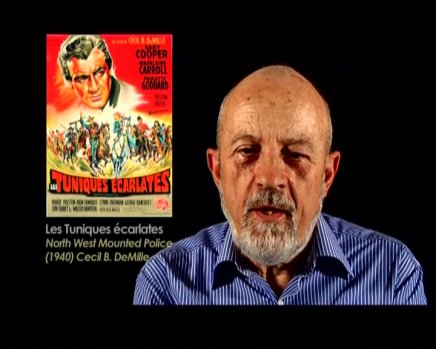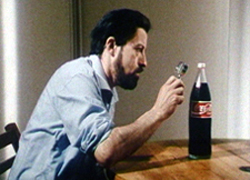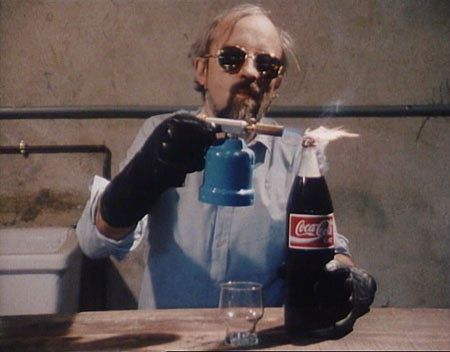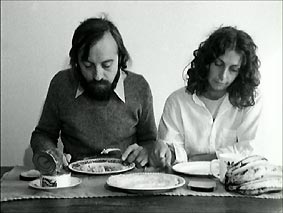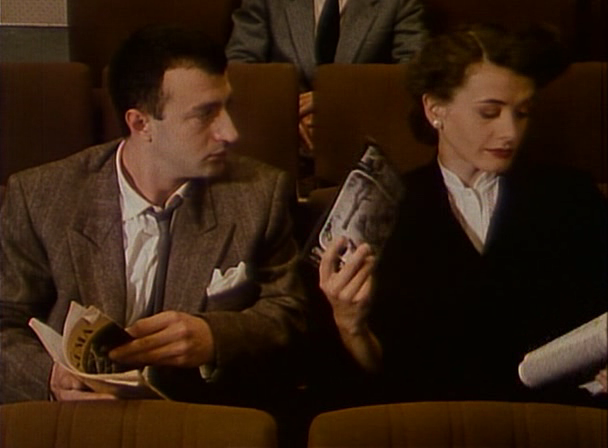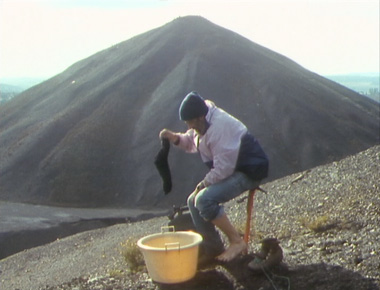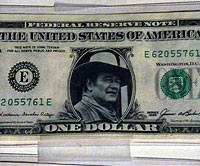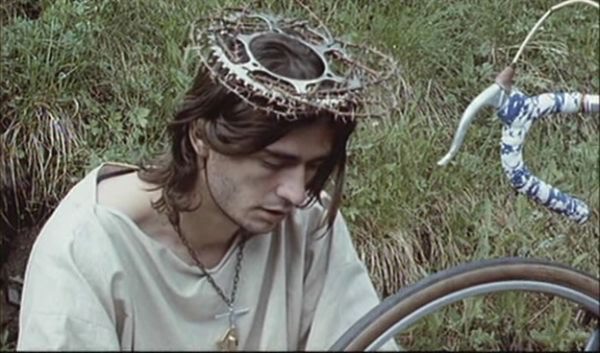This fairly recent (and much more recently updated) piece is a sequel to my earlier “À la recherche de Luc Moullet: 25 Propositions,” originally written and published in 1977. –J.R.
Moullet retrouvé
Almost thirty years have passed between my extended defense of Luc Moullet in Film Comment and the long-overdue launch of the first American retrospective devoted to this mainly comic French filmmaker, who’s also a critic. But it was worth the wait. In the spring of 2006, “Luc Moullet: Agent Provocateur of the New Wave,” including eight of his 32 films, showed up at Chicago’s Gene Siskel Film Center. And three years later, a complete Moullet retrospective was shown in Paris, accompanied by much fanfare, including the publication of a DVD featuring ten of his best short films, Luc Moullet en shorts, and three separate books: a lengthy interview with Emmanuel Burdeau et Jean Narboni (Notre Alpin Quotidien, 130 pages) and a long-overdue collection of his film criticism (Pige Choisies [De Griffith à Ellroy], 372 pages), both published by Capricci, and a study of King Vidor’s The Fountainhead (Le Rebelle de King Vidor: les arêtes vives), published by Yellow Now.
Moullet started out in the mid-1960s as a neoprimitive, brandishing his lack of technique while reflecting some of the tenderness of Francois Truffaut’s films of that period as well as some of the boorish satirical humor of Jean-Luc Godard’s. (His cinema is basically and fairly consistently one of sweet and lovable assholes.) Then he gradually became a petit maître by the mid-80s — both as a director and as an athletic comic performer with a sense of small moments worthy of Jacques Tati. Not quite a minimalist, he still has a way of deflating pretension with earthy, deadpan simplicity. His Essai d’Ouverture (Opening Tries, 1987), the funniest 15 minutes he’s ever filmed, consists of virtually nothing but him trying to open a large bottle of Coke. (One might regard this as an apotheosis of the comedy of domestic frustration virtually minted in the 1950s by MGM’s Pete Smith Specialties; when I was on the selection committee of the New York Film Festival in the mid-1990s, I was delighted to be able to convince the other members to include it in that year’s program, roughly a decade after it was made, thereby making it the festival’s first Moullet film.)
I especially regretted the absence from the Film Center series of his very great and politically potent non- comic documentary, Genèse d’un repas (Origins of a Meal, 1978) and Les sièges de l’Alcazar (1989), his hilarious 52-minute account of an edgy 1955 flirtation between Parisian film critics from rival magazines, Cahiers du Cinéma and Positif, during a Vittorio Cottafavi retrospective, as well as two 90s shorts — his passionate defense of slag heaps (Cabale des oursins, 1991) and a very odd documentary about Des Moines, the home town of both Jean Seberg and John Wayne La ventre de l’Amérique (1996). I also wouldn’t have minded reseeing his his 1984 short Barres, which celebrates and inventories all the ingenious ways one can get onto the Paris métro without paying, and Parpaillon (1992), a delightful comedy feature about a bicycle rally held in the Alps, the full title of which is Parpaillon ou à la recherche de l’homme à la pompe Ursus d’après Alfred Jarry — a film celebrated at length (and in English) by Fabien Boully in the online Rouge. Fortunately, the first five of these films are now available on DVD, the first two with English subtitles. And the polemical force of these strange low-budget comedies and several others by Moullet is especially relevant now, when the low cost of digital cinema is a posing a challenge to blockbuster mentality in all its oppressive ramifications.
A filmmaker of economy in every sense of that term who has produced most of his own films, Luc Moullet has argued that “Each person can realize a good film at least once in his life,” so access to filmmaking for 50 million French people should be facilitated — “especially since there is room for 30 French films a year costing $1 million, but also for at least 500 features costing $6,000.” He’s also claimed of The Smugglers (1967) —- a personal testament and would-be mountain adventure offering a multifaceted metaphor for filmmaking — that if it had cost 20 percent less it would have been better “because there would have been something in the film that emphasized this austerity….One of the great advantages of poverty is to develop a sense of responsibility on the part of the director.”
Moullet is still a tough sell for some people, including many in France —- though his first feature, Brigitte and Brigitte (1966), was an unexpected hit — because his defiant way of challenging glitz remains an affront to the film industry. The son of a mail sorter and a typist, he grew up in the sticks — like the title heroines of Brigitte and Brigitte, who hail from separate mountain villages, and become Paris roommates. (One of them, who reappears in The Smugglers, drops out of a degree in English at the Sorbonne, just as he did.) And mountains are even more important in his movies than country smarts. In A Girl is a Gun, the English-dubbed version of his crazed, erotic Une Aventure de Billy le Kid — which cross-references Sergio Leone, Anthony Mann, Duel in the Sun, and Luis Buñuel’s L’Age d’or —-the vistas are so breathtaking and the colors so gorgeous that they make the absence of any “production values” irrelevant.
The most neglected of the Cahiers du Cinéma critics in the 1950s who became filmmakers in the 60s, and the only one who still writes and publishes criticism today, Moullet was the first to write at length about Samuel Fuller and Edgar G. Ulmer and the first at Cahiers to champion Buñuel. Neither a formalist nor an ideologue, he has the sort of attentiveness to film style that once led him to compare William Faulkner’s run-on sentences in Pylon to the gratuitous camera movements in Douglas Sirk’s film adaptation, The Tarnished Angels. He also wrote in the same period, anticipating his own virtues as a filmmaker, “The young American filmmakers have nothing to say, Sam Fuller even less than the others. He has something to do, and he does it, naturally, without forcing it. This isn’t a small compliment.”
The range of his taste is impressive: a recent list of favorites includes two silent films by Cecil B. De Mille, a short by Godard, Rose Troché’s Go Fish, Raul Ruiz’s The Blind Owl, Catherine Breillat’s second feature, and King Vidor’s Ruby Gentry. Brigitte Bardot is seen reading Moullet’s book on Fritz Lang in Godard’s Contempt (1963) and his Politique des Acteurs came out in 1993, but as with Jacques Rivette, much of his major writing remains uncollected.
Interestingly enough, Pige Choisies uses the titles of both Essai d’Ouverture and Le ventre de l’Amérique in its Table of Contents. The first of these introduces a fascinating, self-disparaging Preface about Moullet’s half-century career as a film critic (including his early entry into Cahiers du Cinéma as a cantankerous groupie of Godard, Rivette, Rohmer, and Truffaut), which is still very much in progress. In the same Introduction, Moullet takes up the issue of antisemitism that has been debated recently in relation to Godard (by Richard Brody’s biography and by Bill Krohn’s very critical review of it in Cinema Scope), maintaining that, in opposition to his “very antisemitic” father, Moullet specialized in panegyrics to Jewish filmmakers — and he then offers a rather eclectic parenthetical list of examples consisting of Lang, Preminger, Lubitsch, Ulmer, Gance, Truffaut, Fuller, and DeMille. (Personally I hadn’t known about Gance or De Mille being Jewish, and Moullet himself couldn’t have known about Truffaut before Truffaut himself did. Furthermore, in some of these cases — including Lang and De Mille and possibly others — Moullet is apparently defining half-Jewish as Jewish, much as many people insist on defining Barack Obama as black. But I’m grateful that at least he leaves out Chaplin, misidentified as either a Jew or a half-Jew — most often by antisemites — for decades.)
The second title in the Table of Contents packages the fifth section (there are a dozen sections in all), with reviews or articles about W.C. Fields, Richard Brooks’ The Last Hunt, Anthony Mann’s Men in War, Chaplin’s A King in New York, Joseph L. Mankiewicz’s The Quiet American, Raoul Walsh’s The Naked and the Dead (a review subtitled, “Better than The Bridge over the River Kwai“), Nicholas Ray’s Wind Across the Everglades, John Ford, and Edgar G. Ulmer. My main disappointments are the absence of Moullet’s reviews of Jet Pilot and The Tarnished Angels. The main pleasant surprise is Moullet’s notorious but formerly unavailable polemic at Pesaro that, according to him, scandalized Barthes, Metz, and Pasolini but delighted Godard, during which Moullet memorably declared, “Language is theft.” (His celebrated celebration of Samuel Fuller is also included — but missing its last two paragraphs, which attempt to connect Fuller with Christopher Marlowe, and which Moullet confesses he now finds incomprehensible.) There’s also an attack on Spanish cinema in general (dubious) and Pedro Almodovar in particular (welcome) that he couldn’t publish anywhere else, his wonderful and extravagant 1996 defense of Raul Ruiz’s The Blind Owl, and much, much more. (By contrast, the interview book, judging from what I’ve sampled so far, is fun but seems relatively slight compared to the shorter interview included in Luc Moullet le contrebandier, a 1993 monograph.)
Regarding Moullet’s multifaceted and sometimes ambivalent politics, Brigitte and Brigitte features both a right-wing Brigitte and a Communist one. (Meanwhile, the small-scale gags and the episodic narrative easily accommodate guest-star appearances by Claude Chabrol, Michel Delahaye, Samuel Fuller, Eric Rohmer, Andre Téchiné, and Moullet himself, as well as his own parents.) The Comedy of Work (1987) seems to admire as well as satirize malingering freeloaders in a welfare state, some of whom are also mountain climbers. (As the late English critic Jill Forbes once remarked, Moullet seems characteristically amused that an organization dedicated to keeping people in work should in fact turn out to keep them out of work in order to keep itself in work.) Both of these features are preoccupied with the absurdities of bureaucracy. And most of the squabbles in Shipwrecked on Route D 17 (2002) —- Moullet’s slickest effort to date, perhaps because it was produced not by him but by Paulo Branco —- are between various city and country folk during the beginning of the first Gulf War, though some oafish French soldiers in search of Saddam Hussein are also in evidence. But the epitome of his deadly irony can be seen in the narration for The Smugglers. Over a shot of a rushing stream, we hear, “Look closely: this used to be a totalitarian state.” The camera pans over to the embankment on the right. “Now it was to know freedom and democracy. All at once, everything would change.” Then it pans back to the stream. “Look at it now!” The narrator is saying something, and the camera is doing something. And you might say the deed speaks louder than the words.
–adapted from “The Modest Master,” Chicago Reader, March 31, 2006, and “Two (Out of Three) Luc Moullet Books & One DVD,” www.jonathanrosenbaum.net, posted 5/3/09

